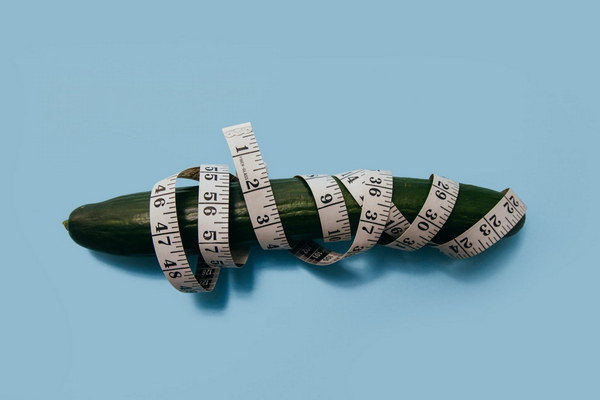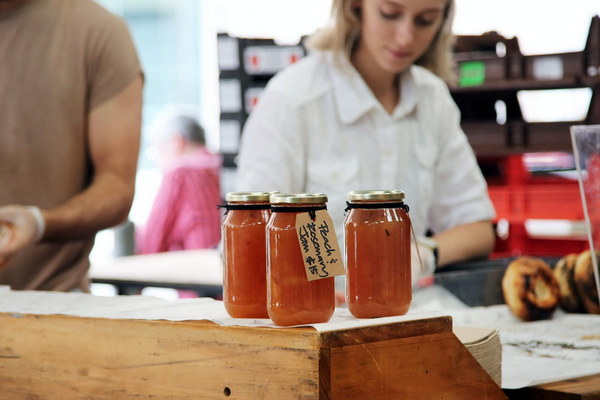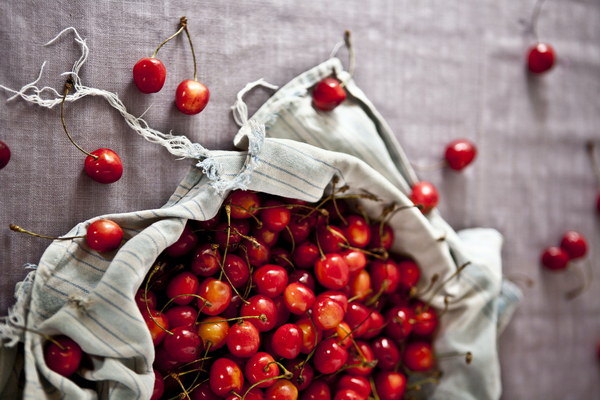Nourishing Hope A Comprehensive Guide to Cancer-Fighting Nutrition for Blood Cancer Patients
Blood cancer, also known as hematological cancer, is a complex and challenging condition that affects the blood-forming tissues in the body. It encompasses various types, including leukemia, lymphoma, and myeloma, and can be life-threatening if not treated promptly. While conventional treatments like chemotherapy, radiation, and stem cell transplants play a crucial role in managing blood cancer, complementary therapies, such as dietary interventions, can support overall health and well-being. This article delves into the world of cancer-fighting nutrition, offering a comprehensive guide to blood cancer patients seeking natural ways to nourish their bodies and enhance their quality of life.
1. Understanding the Role of Nutrition in Blood Cancer Treatment
Nutrition is an essential component of cancer care, as it can impact treatment outcomes, recovery, and overall well-being. Proper nutrition helps maintain a strong immune system, supports the body's healing processes, and reduces side effects associated with cancer treatment. For blood cancer patients, focusing on a balanced and nutrient-rich diet is crucial for optimal recovery and survival.
1.1 Energy and Protein Intake
Blood cancer patients often experience weight loss and muscle wasting due to the disease and its treatment. Adequate energy and protein intake is essential to counteract these effects. Patients should aim for a diet that provides a sufficient number of calories and high-quality protein sources, such as lean meats, fish, eggs, dairy, legumes, and plant-based alternatives.
1.2 Immune-Boosting Foods
A strong immune system is crucial for blood cancer patients, as it helps the body fight off infections and other complications. Incorporating immune-boosting foods into the diet can help support the immune system. These include:
- Fruits and vegetables rich in vitamins A, C, and E, such as berries, oranges, spinach, and bell peppers
- Foods high in antioxidants, such as dark chocolate, nuts, and green tea
- Probiotic-rich foods, such as yogurt, kefir, and fermented vegetables
2. Cancer-Fighting Foods and Nutrients
Numerous foods and nutrients have been shown to have anti-cancer properties, potentially benefiting blood cancer patients. Here are some key cancer-fighting foods and nutrients:
2.1 Berries
Berries, such as strawberries, blueberries, raspberries, and blackberries, are packed with antioxidants and anti-inflammatory compounds. These compounds can help reduce the risk of cancer progression and improve overall health.
2.2 Cruciferous Vegetables
Cruciferous vegetables, such as broccoli, cauliflower, and kale, contain sulforaphane, a compound that has been shown to inhibit the growth of cancer cells. These vegetables also have anti-inflammatory and detoxifying properties.
2.3 Garlic
Garlic contains allicin, a compound that has been found to have anti-cancer effects. Garlic can help reduce the risk of cancer recurrence and improve the effectiveness of chemotherapy.
2.4 Green Tea
Green tea is rich in catechins, a type of antioxidant that has been shown to have anti-cancer properties. Green tea can help reduce the risk of cancer recurrence and improve the effectiveness of chemotherapy.
3. Special Considerations for Blood Cancer Patients
Blood cancer patients may have specific dietary requirements and restrictions due to the disease and its treatment. Here are some important considerations:

3.1 Food Safety
Blood cancer patients are at a higher risk of infections, so it's essential to ensure that food is prepared and stored safely. This includes washing hands and surfaces, cooking food to the appropriate temperature, and avoiding raw or undercooked foods.
3.2 Medication Interactions
Some cancer treatments and medications can interact with certain foods and nutrients. Patients should consult their healthcare provider or a registered dietitian to ensure that their diet is safe and appropriate for their specific situation.
3.3 Nutritional Supplements
While a balanced diet is the best way to obtain essential nutrients, some blood cancer patients may require nutritional supplements. These should be discussed with a healthcare provider to ensure they are appropriate and safe.
In conclusion, nutrition plays a vital role in the management of blood cancer. By focusing on a balanced and nutrient-rich diet, incorporating cancer-fighting foods and nutrients, and addressing specific dietary needs and restrictions, blood cancer patients can enhance their quality of life and support their recovery journey. Always consult with healthcare providers or registered dietitians for personalized dietary advice and guidance throughout the cancer treatment process.









